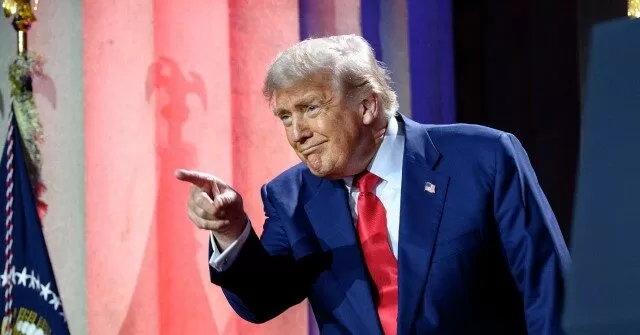The Chinese Communist Party’s Politburo has made a bold decision this week, signaling that it will no longer make efforts to stimulate consumer demand in the ailing economy. This move comes as a response to the ongoing trade war with the United States and the impact it has had on China’s economy.
For years, China has been known as the world’s manufacturing powerhouse, with its economy heavily reliant on exports. However, with the imposition of tariffs by the Trump administration, China’s economy has taken a hit. The Chinese government has been trying to counter this by stimulating consumer demand, but it seems that they have now reached a point where they can no longer continue down this path.
The decision by the Politburo to give up on stimulus measures is a clear indication of the seriousness of the situation. It also shows the government’s commitment to finding a long-term solution rather than just a quick fix. This move may come as a surprise to some, but it is a strategic decision that will benefit the Chinese economy in the long run.
The trade war with the US has been a major challenge for China, with tariffs being imposed on billions of dollars’ worth of Chinese goods. This has not only affected China’s exports but also its domestic market. The uncertainty caused by the trade war has led to a decrease in consumer confidence, resulting in a decline in consumer spending. This, in turn, has had a negative impact on the overall economy.
However, the Chinese government is not backing down in the face of this challenge. Instead, it is taking a different approach to tackle the issue. The focus now is on strengthening the domestic market and reducing China’s reliance on exports. This shift in strategy is a clear indication of the government’s determination to overcome this obstacle and emerge stronger.
One of the main reasons for this change in approach is the realization that the trade war with the US may not end anytime soon. With tensions between the two countries escalating, it is essential for China to find a way to sustain its economy without relying on exports. This is a challenging task, but the Chinese government is confident that it can be achieved.
Another factor that has influenced this decision is the changing global economic landscape. With the rise of protectionism and trade tensions between major economies, it has become clear that China needs to diversify its economy and reduce its dependence on exports. This is not an easy task, but it is a necessary one for the long-term growth and stability of the Chinese economy.
The decision to give up on stimulus measures may seem like a step back, but it is, in fact, a step forward. It shows that the Chinese government is willing to make tough decisions for the greater good of the economy. It also demonstrates the government’s ability to adapt and find new ways to overcome challenges.
The Chinese economy has been growing at an impressive rate for decades, and this growth has been driven by exports. However, the current situation has highlighted the need for a more balanced and sustainable economy. The government’s decision to give up on stimulus measures is a significant step towards achieving this goal.
In conclusion, the Chinese Communist Party’s Politburo has made a bold and strategic decision to give up on stimulus measures for the ailing economy. This move may come with short-term challenges, but it is a necessary step towards long-term growth and stability. The Chinese government is determined to overcome the challenges posed by the trade war and emerge stronger. This decision is a clear indication of the government’s commitment to finding a sustainable solution for the Chinese economy.

